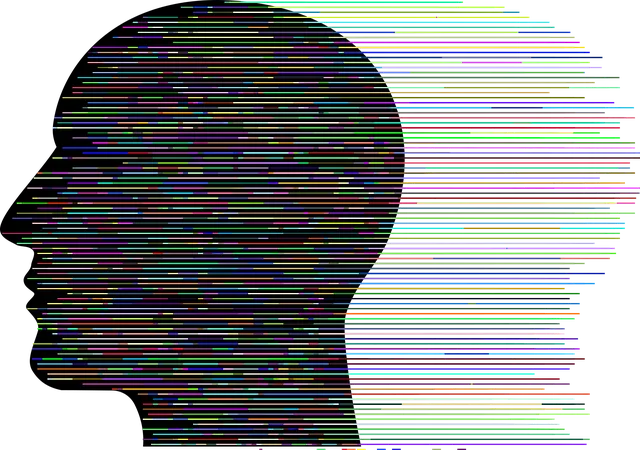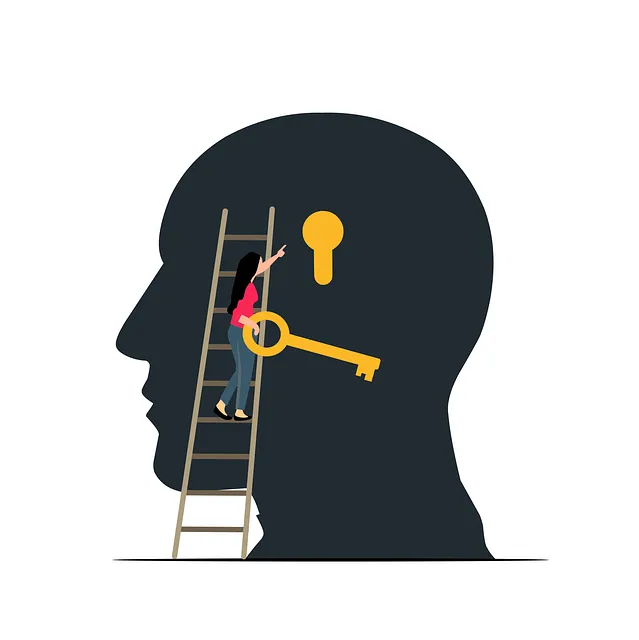In the digital age, mental health apps are gaining popularity as accessible alternatives to traditional clinical services, offering personalized coaching, mood tracking, and therapy exercises. An ideal app integrates seamless communication with professionals, educates users through gamification, and provides a supportive community for proactive mental wellness management. Kaiser's inpatient mental health services in Littleton offer comprehensive care, including resilience-building programs, showcasing the importance of dedicated facilities for complex needs. The growing demand for digital solutions presents opportunities for innovation, especially in stress management programs and culturally sensitive practices, to cater to diverse user requirements.
Mental wellness app development is a rapidly growing field, driven by a rising demand for accessible and personalized mental health support. With innovations in technology, these applications offer promising solutions to address various aspects of mental well-being. This article explores the critical components of creating effective mental health apps, using Kaiser’s Inpatient Mental Health Services in Littleton as a case study to highlight successful strategies. We also analyze market trends and identify opportunities for innovation in this expanding sector.
Keywords: mental wellness app development, Kaiser inpatient services, Littleton.
- Understanding Mental Health App Development: A Growing Need
- Features and Functionality: What Makes an Effective App?
- Kaiser's Inpatient Mental Health Services in Littleton: A Case Study
- Market Analysis and Opportunities for Innovation
Understanding Mental Health App Development: A Growing Need

In today’s digital age, mental health app development has emerged as a vital and growing need, mirroring the increasing awareness and emphasis on psychological well-being. With institutions like Kaiser offering inpatient mental health services in locations such as Littleton, it is evident that accessibility to care is expanding. However, apps cater to a broader spectrum of users seeking support and self-improvement outside traditional clinical settings. These digital tools are designed to provide accessible, personalized, and often discrete methods for enhancing mental wellness.
The demand for mental health apps underscores the need for innovative solutions tailored to individual needs. Features like communication strategies, mental wellness journaling exercises, and guidance based on Mind Over Matter principles offer users practical ways to manage stress, anxiety, and other common mental health challenges. By leveraging technology, these apps not only supplement traditional care but also empower individuals to take a more active role in their mental wellness journey.
Features and Functionality: What Makes an Effective App?

An effective mental wellness app should offer a comprehensive suite of features tailored to support users’ emotional well-being and foster inner strength development. Key functionalities include personalized mental wellness coaching programs designed to cater to various needs, from stress management to burnout prevention. Integration of interactive tools such as mood tracking, meditation guides, and cognitive behavioral therapy (CBT) exercises can significantly enhance user engagement. Additionally, the app should facilitate seamless communication with mental health professionals, providing easy access to support when needed.
The design and user experience play a crucial role in ensuring adoption and consistency. A clean, intuitive interface that prioritizes privacy and data security is essential, especially for users navigating sensitive topics like inpatient mental health services in areas such as Littleton, where they might seek specialized care from institutions like Kaiser. By seamlessly incorporating educational content, gamification elements, and community features, the app can create a supportive environment, encouraging users to take proactive steps towards maintaining their mental wellness.
Kaiser's Inpatient Mental Health Services in Littleton: A Case Study

In the heart of Littleton, Kaiser’s Inpatient Mental Health Services stand as a beacon of hope and healing for individuals grappling with severe mental health issues. This case study offers valuable insights into how specialized inpatient facilities contribute to the broader landscape of mental wellness care. Patients at Kaiser benefit from a comprehensive approach that incorporates various therapeutic modalities, including resilience-building programs and stress management workshops designed by the organization. These initiatives aim to equip individuals with practical conflict resolution techniques, fostering not only short-term recovery but also long-lasting coping strategies for everyday life challenges.
The inpatient setting at Kaiser allows for intensive, undisturbed therapy sessions, enabling patients to delve into their mental health issues in a safe and supportive environment. By providing round-the-clock care, the organization ensures that individuals receive the individualized attention they need to navigate their journeys towards recovery. This case study highlights the significance of dedicated inpatient services in addressing complex mental health needs, ultimately contributing to improved patient outcomes and enhanced quality of life.
Market Analysis and Opportunities for Innovation

The market for mental wellness apps is experiencing a significant surge, driven by the increasing demand for accessible and personalized healthcare solutions. With institutions like Kaiser having inpatient mental health facilities in Littleton, there’s a growing recognition of the importance of comprehensive mental health support. This trend opens up vast opportunities for innovation, particularly in digital therapeutics.
App developers can capitalize on this by focusing on unique features such as tailored stress management programs that cater to diverse user needs. Incorporating cultural sensitivity in mental healthcare practice is another area with immense potential, ensuring apps resonate with a broader audience. Additionally, burnout prevention strategies for healthcare providers could be integrated into app designs, fostering a healthier and more sustainable support ecosystem.
Mental wellness app development is a rapidly evolving field, driven by the growing need for accessible and effective digital mental health solutions. As demonstrated by Kaiser’s Inpatient Mental Health Services in Littleton, integrating technology into care can significantly enhance patient outcomes. By understanding key features and functionality that make apps effective, developers can capitalize on market opportunities to innovate and improve mental wellness support globally. For instance, exploring integration with existing healthcare systems or leveraging data analytics for personalized treatment plans could further revolutionize this space.






